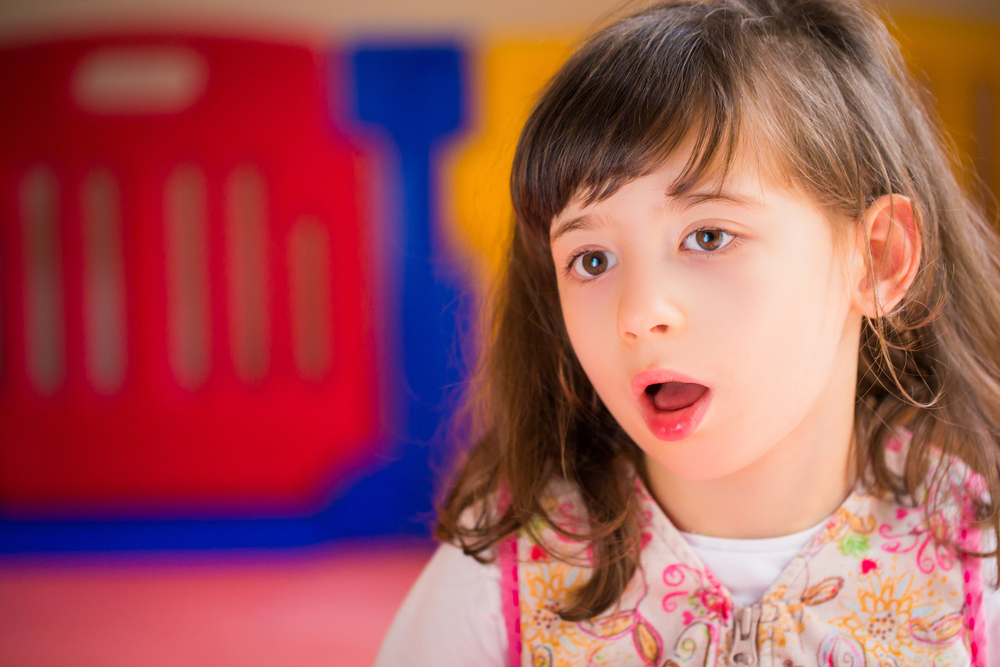Childhood epilepsy is a neurological disorder that causes seizures in children. It is one of the most frequent nervous system illnesses. Children and adults of all races and ethnic origins get affected with this.
Most of the parents don’t know what is happening to their child. It’s necessary to educate yourselves if your child is suffering from any such disorder, God forbid.
Keep on reading this article to know everything about childhood epilepsy, causes, signs and treatment.
Table of Contents
Childhood Epilepsy: What Is It?
Childhood epilepsy is also called ‘seizure disorder’.
Epilepsy can strike at any age, but it is most frequently diagnosed in youngsters and individuals over 65.
Some children with epilepsy outgrow their seizures as they get older, while others continue to have seizures throughout adulthood.
Although epilepsy manifests itself differently in each individual, many children with epilepsy have seizures that respond well to treatment and go on to have a normal and active childhood.
Before moving onto causes of epilepsy in children, let’s first understand what a seizure looks like.
What Happens Inside Your Child’s Brain During a Seizure?
Here is a simple example of what a seizure does to your child’s brain:
The neurons in your brain are billions of nerve cells that communicate with one another via small electrical impulses.
When a high number of cells send out an electrical charge at the same moment, a seizure ensues.
A seizure occurs when an aberrant and powerful wave of electricity overwhelms the brain, causing muscle spasms, loss of consciousness, unusual behavior, and other symptoms.
Which Situations Can Bring on the Seizures?
Under certain circumstances, anyone can experience a seizure. A seizure gets triggered by a fever, lack of oxygen, brain trauma, or disease, for example.
What are the Causes of Childhood Epilepsy?
Many things can trigger a seizure. Some examples are:
- An imbalance of brain chemicals that transfer nerve signals (neurotransmitters)
- Brain cancer
- Stroke
- Damage to the brain caused by sickness or injury
A combination of these factors can cause a seizure. The etiology of a seizure is almost always unknown.
Why Does My Child Have Epilepsy?
Epilepsy affects certain youngsters if their brain is harmed in some way. This could be the result of a serious head injury, birth complications, or a brain infection like meningitis.
Symptomatic epilepsy is a term used to describe epilepsy that has a known structural cause.
Some researchers now believe that the risk of developing epilepsy is always genetic to some extent, in the sense that everyone who begins to have seizures has always had a genetic predisposition to do so. This level might be ranging from very high to very low.
According to Dr. Shahid Sheikh, even if seizures begin after a brain damage or other structural change, they could be caused by both the structural change and the person’s hereditary proclivity for seizures.
This makes sense when we consider that many people may suffer from the same brain injury, but not everyone develops epilepsy as a result.
What are the Symptoms of a Seizure in Childhood Epilepsy?
The symptoms your child experiences are determined by the type of seizure. Seizure symptoms or warning indicators include the following:
- Staring
- Arms and legs jerk back and forth.
- The body becomes stiffer
- Consciousness loss
- Breathing difficulties or inability to breathe
- bowel or bladder control loss
- Falling unexpectedly and without warning, especially when accompanied by loss of awareness
- For short periods of time, your child does not respond to noise or words
- Having a hazy or confused appearance
- Loss of awareness or consciousness linked with nodding head rhythmically
- Rapid eye blinking and gazing periods
Your child’s lips may become blue and his or her breathing may become irregular during the seizure. Your youngster may be tired or confused after the seizure.
Read more about signs of a healthy growing child.
How to Diagnose Epilepsy in Children?
If your child has had more than one seizure, an epilepsy diagnosis is investigated.
Typically, the general physician will recommend your child to a pediatrician. You (and your child, if they can) may be asked to explain the events leading up to, during, and following the seizure in detail.
A video clip of the seizure can assist the doctor in determining what is going on.
Your pediatrician can suggest you a few tests to aid in the diagnosis. The tests cannot confirm or rule out epilepsy, but they can provide additional information to aid in the diagnosis of your child’s seizures.

What are the Treatment Options for Childhood Epilepsy?
There are many treatment options for epilepsy in children; including:
Medications
Antiepileptic medications are used to treat epilepsy in the majority of cases. These medications may prevent seizures, but they are not cures and cannot stop a seizure once it has started.
Many children will never require medication again in their life. People should not stop treatment without consulting a doctor, as seizures may return or worsen.
Antiepileptic medications do not prevent all seizures in youngsters. Other therapies may be required in certain situations.
Ketogenic Diet
If drugs aren’t working, some kids may be able to control their seizures by following a ketogenic diet, sometimes known as a “keto diet.”
When placing a child on a keto diet, it’s critical to ask your doctor first. Read more to understand side effects of ketogenic diet and why it’s essential that you should always consult a specialist first.
Neurostimulation
If medication fails to control epilepsy, a doctor may suggest neurostimulation. A gadget transmits tiny electric currents to the neurological system in this therapy.
There are three methods of neurostimulation for epilepsy treatment currently available:
- Stimulating the vagus nerve
- Neurostimulation that responds
- Brain stimulation at a deep level
Surgery
In some cases, specific children can have surgery to remove a portion of the brain. These surgeries may prevent or reduce seizures.
How to Help Your Child Live With Epilepsy?
You can assist your epileptic child in managing his or her health. Make sure to:
- If your child is old enough, make sure he or she knows the type of seizure he or she is having and the medication required.
- Know all of your medications’ dosages, times, and side effects. Give your child the medication exactly as it is prescribed.
- Before giving your kid any other medications, consult with your child’s healthcare professional. Seizure medications can interact with a variety of different medications. This may result in the drugs not working properly or causing unwanted effects.
- Assist your child in avoiding anything that could cause a seizure. Make sure your child gets enough sleep, as sleep deprivation can cause a seizure.
- Make sure your youngster sees his or her doctor on a regular basis.
Putting it all Together!!
If your child’s seizures are well-controlled, you may not require many activity limitations. For sports like skating, hockey, and biking, make sure your child wears a helmet. Ensure that your child is supervised when swimming.
Keep in mind that your child may not need medicine for life. Talk with the healthcare provider if your child has had no seizures for 1 to 2 years.
To consult a well-known pediatrician for your child’s health concerns, book an appointment via Healthwire.pk or call at (042) 32500989.
